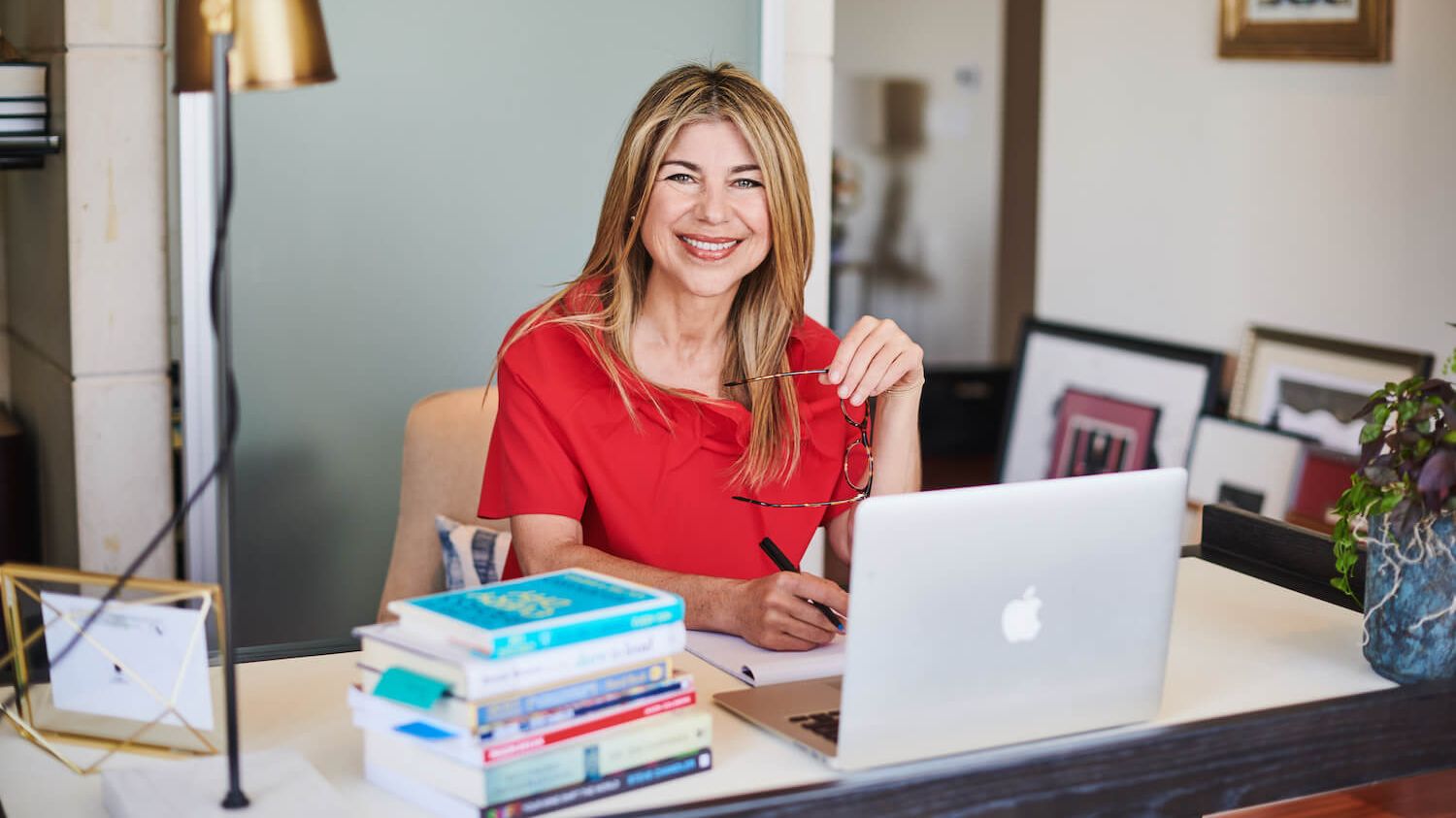Bucketful of Happiness? No Thanks

Want to this listen to this article instead? Tune in here.
I have a bone to pick with the Happiness Crowd!
Through the last decade, we’ve been obsessed with exploring, chasing, and finding happiness. Look through any airport bookstore, and you’ll find countless authors promising happiness—only if you follow their specific formula.
This is Happiness…The How of Happiness…The Happiness Project…The Happiness Equation…The Meaning of Happiness…and my personal favorite (not really!)...Growing Up With A Bucketful of Happiness!
There is even a World Happiness Report, which lost all its legitimacy in my eyes when I understood that it’s put together by some long-named committee belonging to the UN, the last source whose opinion and research I would trust on just about anything.
If you’ve stuck with me this far, you might ask, “What exactly is your problem with happiness, Carolyn? Don’t you help people find it? Isn’t that what coaching is all about?”
No.
Deep transformational Coaching—the kind that creates lasting changes—does not aim for happiness.
Think about the last time you were happy. Chances are, it was about some success, celebration, or bit of good fortune that—however exciting—passed quickly.
I was happy when I received a kind message from a client.
I was happy when my kid shared some good news about their life.
I was happy when I finished a good long run.
I was happy when my tax accountant saved me some money.
If you haven’t noticed, happiness passes as quickly as it arrives. I can train for a race for nine months and feel happy when I complete the said race, but an hour later, life is oddly back to whatever my baseline emotions are.
And that’s where contentment comes in.
Whereas happiness is an emotion caused by a desired outcome, contentment is a state of being born of an appreciation for what is.
Happiness celebrates the near past, but contentment appreciates the present moment.
When I was chasing happiness, I would wake up each morning to a runaway train of thoughts, goals, and to-do lists, which, if accomplished, would make me happy. What was accomplished yesterday and the gifts and blessings in the present moment did not matter because I was in the chasing state—the never-enough-time-to-achieve-all-the-things state!
That was me a decade ago, and doing the work and daily practices of cultivating contentment and refusing to chase has changed my life's feeling, flavor, and soundtrack—for the better. I now wake up feeling deep gratitude and satisfaction for what is, regardless of what I can, should, and want to accomplish. A few simple reminders like, “I’m so content to sleep deeply, to have a safe home, to have the love of my children, to be loved and appreciated profoundly…” lead me to feel content even if I don’t check one more thing off on my to-do list that day.
This practice shifts me from feeling like a human doing to the human being I’m meant to be.
So, have I lost my edge? Am I just writing in a gratitude journal all day and disregarding life and its many challenges? Have I traded in ambition for complacency?
Content is not complacent, unambitious, or settling for less. It is not being lazy or idle.
On the contrary, content is one of the most high-energy-producing states we can tap into. When we are content, we can think clearly and prioritize our time and resources on what generates purpose and adds to our state of contentment rather than subtracts from it.
Contentment is not achieved once and then forgotten; it requires continual protection to persist. Once we understand the clear distinction between happiness and contentment, we need to commit to protecting the necessary events, relationships, activities, and even things that are the building blocks of our house of contentment.
To achieve this goal for myself and my clients, I start with a tool I call The Contentment Audit.
To begin this exercise, we ask ourselves, “What, if missing, would make me profoundly unhappy every day?”
When responding, be your own tough, honest, but loving friend. Hold yourself to the highest standards. If your response is, “My orange Loro Piana sweater that I love so much,” without judgment and with grace and humor, send yourself back to the drawing board. Losing a cherished item can rob us of feeling happy for an hour, a day, or a week. But if its loss makes us truly unhappy daily, perhaps we have a different issue to address.
Some responses I and my clients found on our Contentment Audit are:
My children’s health
Clean water
Money to take care of all my needs
Being loved
A warm, cozy bed
My soulmate’s love and devotion
Traveling with ease
My eyesight
My work
A handful of long-time friends
Being able to move as I wish
The list is endless if we choose it to be, but it’s not enough to shift us into contentment.
For that to happen, we must commit to protecting our Contentment Blocks by devoting fierce attention to their presence and cultivation. We do this by creating a practice of reminding ourselves of their existence every single day. A few sentences when opening our eyes in the morning is often a sufficient reminder. But as the day gets going and our Contentment Blocks are at risk of being sacrificed at the multiple altars of people-pleasing, rushing, and harmful habits, we must do the work to be the fierce protectors our contentment deserves.
Simple, but like everything else worth achieving, it's not easy.




